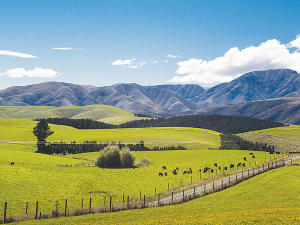Environment Southland (ES) councillors have adopted an organisational target to reach net zero greenhouse gas emissions by 2050.
Net zero means cutting greenhouse gas emissions to as close to zero as possible, with any remaining emissions being offset through actions like planting trees.
Nationally, 42% of councils have net zero or carbon neutral targets ranging from 2025-2050 for their council operations and/or their council area.
Currently, 44% of councils are actively monitoring and reporting their emissions. Of those that are not, a number have committed to this in the future or are currently going through the baseline process.
Strategy and policy committee chairman Lyndal Ludlow says setting an organisational net zero greenhouse gas target for 2050, as a minimum, is a good starting point for aligning with net zero targets nationally and internationally.
“The risks and implications of climate change are being felt across New Zealand. It’s important for Council to ‘walk the talk’ and commit to reducing its emissions. Many in the community are already doing this,” Ludlow says.
“Measuring our current emissions is key to building a better picture of where reductions can be made,” he says. “This work is urgent and underway. Additional interim targets will also be considered along with how these could be best incorporated into a realistic emissions reduction pathway for Environment Southland.”
Among the things that may be considered include a further review of ES’s vehicle fleet, improving online meeting technology; increasing renewable energy options and reducing energy consumption for building and monitoring equipment, and reviewing procurement policies to ensure they align with the net zero organisational goal.
Emissions reduction planning will form a key part of ES’s next long-term plan (2024-34).
Councillors and staff from Southland’s four councils, with Te Ao Mārama (the environmental arm of Ngāi Tahu ki Muirhiku), have formed the Climate Change Inter-agency Group, which held its first meeting in February.
The priority for this group is to develop the Regional Climate Change Strategy. This work will provide key information for the development of each council’s Long-term Plans, driving Southland’s long-term response to climate change.

















